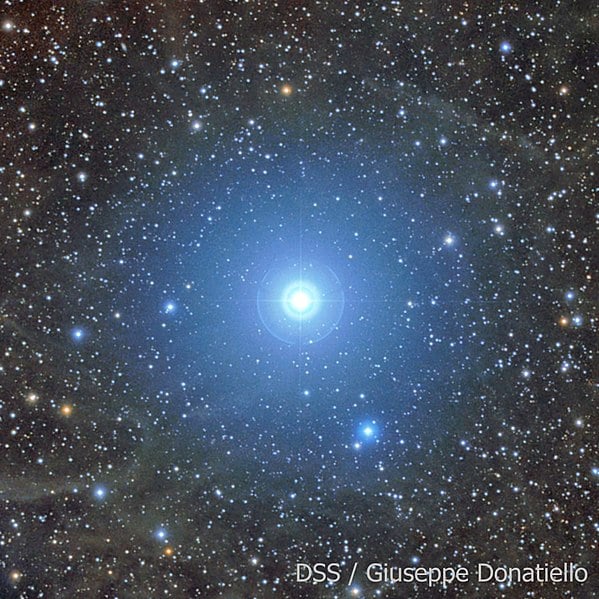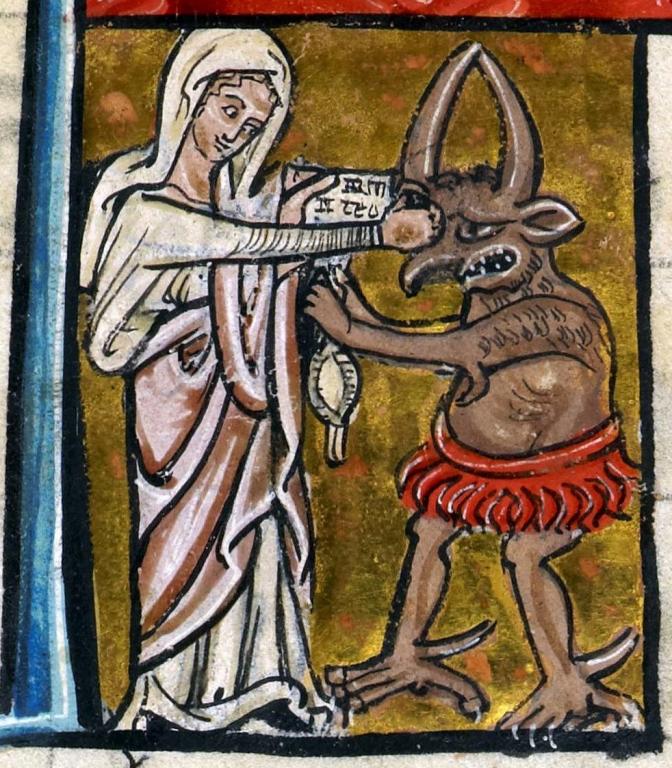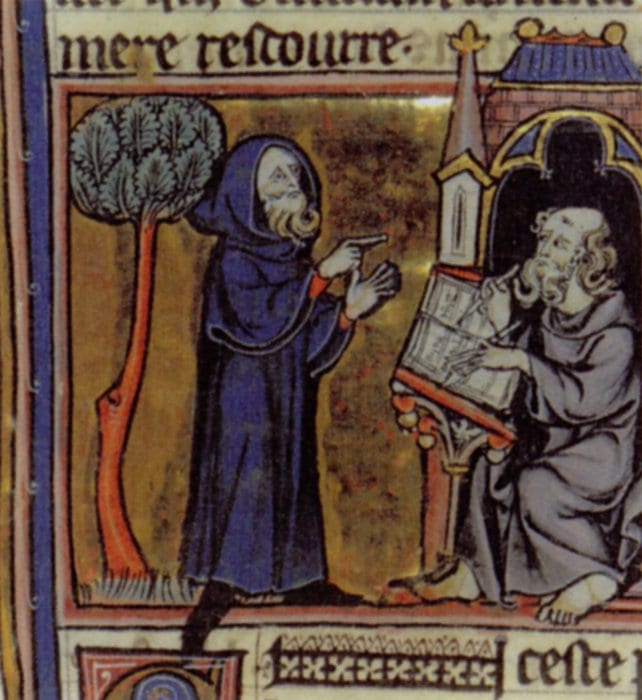
Christmastide
3 January 2018
The Edge of Elfland
Concord, NH
Dearest Readers,
There have been some mutterings lately, mutterings against enchantment in Christian circles. I’ve even seen one name more than any other being trotted out as a champion against enchantment: Augustine. Perhaps, they say, we should be reading Augustine’s Confessions on astrology. But what does Augustine say about the astrologers and what, if any, effect should this have on our understanding of reality?
First, to the text itself. Augustine in Book VII of the Confessions writes about a friend who was interested horoscopes. At this point in Augustine’s life he was already beginning to doubt the usefulness of horoscopes, but he indulged his friend and then listened to a story about two men. One man was going to have a son. The other had a servant who was going to have a child. They were, so far as could be ascertained, conceived at the same time and born at the exact same time, or so close as to not be distinguishable by men in the fourth century. So, their horoscopes should have been exactly the same. And yet, one rose to prominence, being the son of a prominent man, and the other remained a slave. Why? Why weren’t the same in their outcomes?
In Augustine’s City of God as well as in all his begun, but usually incomplete, commentaries on Genesis, Augustine trots out the same argument against astrology: twins. If astrology really worked, then twins should grow up to be exactly the same. And yet, he notes, they are nearly always so vastly different due to different experiences. Jacob and Esau is a favorite example of this for Augustine since the two men concluded in vastly different lives. But does this show that Augustine was against all aspects of astrology? I would argue no.
Augustine seems primarily concerned with two issues when he takes on astrology. The first is the issue of fate. Augustine in arguing against manichees and stoics, is concerned with ensuring free will. If all things are fated then we do not have free will, and, which is worse, God is the cause of our evil actions. So, whether the stars (and this includes, and really chiefly means, the planets) cause our actions directly or foretell our actions as God has ordained them, then either we are imputing the cause of our sin to the Stars or to God. Both, so far as Augustine is concerned, are unacceptable.
The second concern Augustine seems to have is with divination, or fortune-telling. He dislikes the horoscopic nature of astrology as it ventures to tell the future. This, we do well to remember, is the problem with astrology. Augustine warns Christians against it because if the astrologers get things right they do so by engaging with demons. Centuries later, Dante will present the astrologers in the eighth circle of Hell, the circle of the fraudulent. In other words, by Dante’s age the issue with astrology was less about the demonic and more about the fact that the astrologers were lying.
What is interesting is Augustine’s position on the nature of the stars. According to Aquinas, and this seems right, Augustine was unwilling to take a position on whether the stars, again read planets here, were enspirited––they have a motive spirit in a similar way to how we have a soul––or whether they moved by angelic intelligences. Either way, however, the stars and planets are not simply exploding balls of gas or giant rocks of ice and fire, even if that’s what they’re made of.
Now, I will admit that on one point of exegesis do I disagree with Augustine. In all of his commentaries on Genesis, Augustine reads Genesis 1:14, specifically that the Sun, Moon, and Stars are useful as signs, to mean simply as signs for marking time. Here I think he’s wrong. If, after all, the stars are either enspirited or moved by angelic intelligences they are still conscious, if not themselves then in the motive power behind them, and these conscious selves could, presumably, be useful as signs for more than the demarcation of time. The star followed by the Magi gives clear evidence of this.
In the star followed by the Magi, we have a clear example of a star announcing an event that has already happened. And this is key. The star is not predicting a future event, nor is it claiming to say anything about the fate of the person in question, or at least nothing evil, which is Augustine’s concern. Rather it announces the birth of a king, the King. Here the Star serves as a sign that is more than a simple demarcation of time, though it is certainly a sign of Time.
Augustine’s view on things did not take, generally speaking. Whether you read Boethius or Dante or anyone in between, we can see some evidence of what we now call astrology. But it is essential to remember that Augustine’s primary concerns were about demons, imputing evil to God and the angels, and removing free will from human beings. But as C.S. Lewis argues in The Discarded Image there is more to it than this.
Sincerely,
David Russell Mosley










